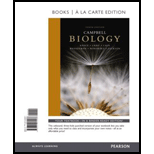
Concept explainers
Introduction:
The brain is a complex system that controls various activities. The limbic system is a set of brain structures that are present beneath the thalamus. The limbic system is involved in emotion, memory, learning, and motivation. Amygdala is an almond-shaped mass of nuclei located near the base of the cerebrum. It controls the emotional memory such as a frightening event that can trigger faster heart rate, sweating or fear. The medulla oblongata is the lower part of the brain stem. It deals with the autonomic functions, homeostatic functions such as breathing, heart rate, and blood pressure. The cerebellum is a part of the hindbrain. It controls involuntary activities such as blood circulation and coordinates motor activities such as locomotion.
Want to see the full answer?
Check out a sample textbook solution
Chapter 49 Solutions
Campbell Biology, Books a la Carte Plus Mastering Biology with eText -- Access Card Package (10th Edition)
- 2. Drug quantification from plasma is commonly performed by using techniques such as HPLC or LC/MS. However, these methods do have limitations, and investigators may choose to use a radiolabeled analog of a drug instead. Radioligands are molecules that contain radioactive isotopes, commonly 3H or 14C. This technique allows investigators to quantify drug concentration from radiation measurements. The following measurements were made in 250 g rats following oral administration of 18.2 µCi of a 14C-labeled drug of interest: Time (min) Plasma Radiation Levels (µCi/L) 0 0.0 2 9.7 4 19.2 7 25.3 9 37.8 12 39.6 14 45.8 17 48.8 20 52.0 25 56.4 30 59.2 35 60.1 40 61.1 45 62.1 50 62.8 60 63.1 70 62.1 80 60.1 90 57.3 100 55.5 110 53.7 120 52.2 150 48.0 180 45.0 240 39.0 Note that a µCi is a measure of the amount of radioactivity and hence is a measure of the amount of drug present. Given that the oral bioavailability of this drug is known to be essentially 100%, estimate the following from this…arrow_forwardThe current nutrition labelling regulation in Hong Kong requires food manufacturer to list E+7 information on the package of pre-packaged food products. Do you think that more nutrients, such as calcium and cholesterol, shall be included?arrow_forwardView History Bookmarks Window Help Quarter cements ents ons (17) YouTube Which amino acids would you expect to find marked on the alpha helix? canvas.ucsc.edu ucsc Complaint and Grievance Process - Academic Personnel pach orations | | | | | | | | | | | | | | | | 000000 000000000 | | | | | | | | | | | | | | | | | | | | | | 00000000 scope vious De 48 12.415 KATPM FEB 3 F1 F2 80 F3 a F4 F5 2 # 3 $ 85 % tv N A の Mon Feb 3 10:24 PM Lipid bilayer Submit Assignment Next > ZOOM < Å DII 8 བ བ F6 16 F7 F8 F9 F10 34 F11 F12 & * ( 6 7 8 9 0 + 11 WERTY U { 0 } P deletearrow_forward
- Different species or organisms research for ecologyarrow_forwardWhat is the result of the following gram stain: positive ○ capsulated ○ acid-fast ○ negativearrow_forwardWhat type of stain is the image below: capsule stain endospore stain gram stain negative stain ASM MicrobeLibrary.org Keplingerarrow_forward
- What is the result of the acid-fast stain below: Stock Images by Getty Images by Getty Images by Getty Images by Getty Image Getty Images St Soy Getty Images by Getty Images by Getty Images Joy Getty encapsulated O endosporulating negative ○ positivearrow_forwardYou have a stock vial of diligence 75mg in 3ml and need to draw up a dose of 50mg for your patient.how many mls should you draw up to give this dosearrow_forwardYou are recquired to administer 150mg hydrocortisone intravenously,how many mls should you give?(stock =hydrocortisone 100mg in 2mls)arrow_forward
- If someone was working with a 50 MBq F-18 source, what would be the internal and external dose consequences?arrow_forwardWe will be starting a group project next week where you and your group will research and ultimately present on a current research article related to the biology of a pathogen that infects humans. The article could be about the pathogen itself, the disease process related to the pathogen, the immune response to the pathogen, vaccines or treatments that affect the pathogen, or other biology-related study about the pathogen. I recommend that you choose a pathogen that is currently interesting to researchers, so that you will be able to find plenty of articles about it. Avoid choosing a historical disease that no longer circulates. List 3 possible pathogens or diseases that you might want to do for your group project.arrow_forwardnot use ai pleasearrow_forward
 Biology (MindTap Course List)BiologyISBN:9781337392938Author:Eldra Solomon, Charles Martin, Diana W. Martin, Linda R. BergPublisher:Cengage Learning
Biology (MindTap Course List)BiologyISBN:9781337392938Author:Eldra Solomon, Charles Martin, Diana W. Martin, Linda R. BergPublisher:Cengage Learning Human Physiology: From Cells to Systems (MindTap ...BiologyISBN:9781285866932Author:Lauralee SherwoodPublisher:Cengage Learning
Human Physiology: From Cells to Systems (MindTap ...BiologyISBN:9781285866932Author:Lauralee SherwoodPublisher:Cengage Learning





